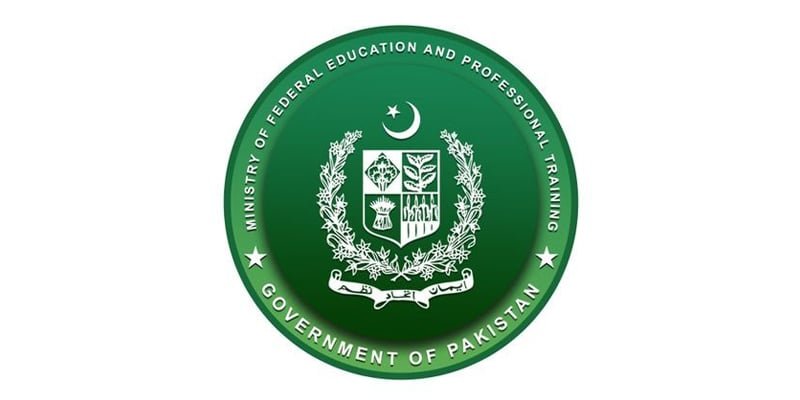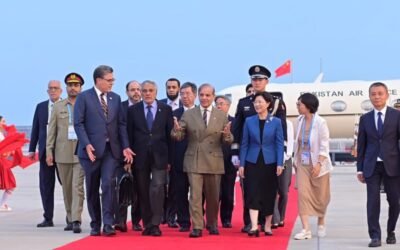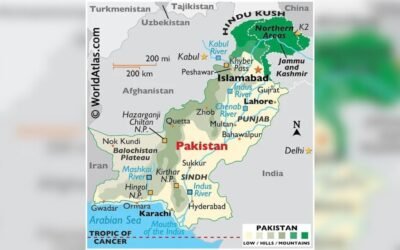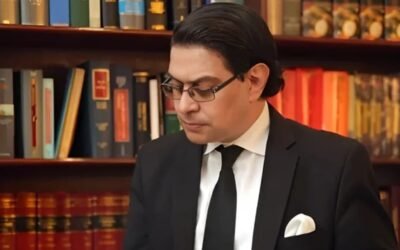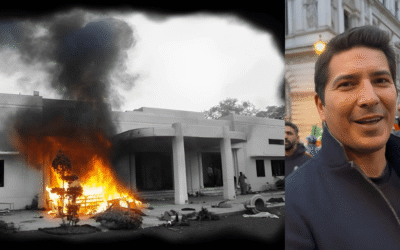Education is the backbone of any nation. In Pakistan, the education system has long been divided, with different schools using various books and teaching methods. This has created gaps between the wealthy and the poor, as well as among different regions of the country. To fix this, Pakistan introduced the Single National Curriculum (SNC) in 2020. This significant change aims to create equal education opportunities for all children, whether they attend public, private, or religious schools. The goal is to ensure everyone has an equal chance and to promote a more united nation. However, like any major reform, the SNC has sparked many discussions among parents, teachers, and critics.
What is the SNC?
The Single National Curriculum (SNC) is a plan to standardize what is taught in all schools across Pakistan. Before SNC, various school systems (government, private, and madrassas) had their separate curricula. This meant that a student in a government school learned different content in a different manner than a student in an elite private school. The SNC aims to unify all these systems under one common curriculum, from primary to higher secondary levels.
The SNC is being rolled out in three phases:
- Phase 1: Grades 1-5 (started in March 2021)
- Phase 2: Grades 6-8 (started in March 2022)
- Phase 3: Grades 9-12 (planned for March 2023)
Goals and Vision
The main idea behind the SNC is to create a fair and equal education system for all. Its goals include:
- Equal Opportunities: To ensure every child has the same opportunity for a good education, regardless of their background or where they live.
- National Unity: To teach all children the same values and history, fostering a more united nation with shared heroes and beliefs.
- Reduce Differences: To reduce disparities between various types of schools (public, private, religious) and lessen social and economic inequality.
- Improve Quality: To improve the overall quality of education by implementing common learning goals, teaching methods, and assessment techniques. The SNC aims to shift from rote learning (just memorizing) toward activity-based and inquiry-based learning.
- Modern Skills: To develop skills necessary for the 21st century, such as critical thinking and problem-solving.
Beyond specific learning outcomes, the SNC also aligns with Pakistan’s broader commitment to youth development. The National Youth Policy emphasizes promoting youth empowerment through education and skill development. The SNC, by standardizing quality and emphasizing essential skills, aims to play a crucial role in preparing the nation’s large youth population for future challenges and opportunities.
The SNC covers core subjects such as language (Urdu and English), math, and science. It also includes religious education with specific content from the Quran and Sunnah, as well as religious topics integrated into other subjects like English and Urdu. For non-Muslim students, separate religious education books are planned, and they are not required to study Islamic Studies.
Former Education Minister Shafqat Mehmood, who led the SNC rollout, called it “a big step towards a uniform education system,” highlighting its focus on equity and quality for all Pakistani children.
This is to clarify some issues re Single National Curriculum. SNC prescribes minimum learning standards i.e the core curriculum. Schools are free to teach any additional material or even additional subjects. 2nd. Private schools can use any book that is consistent with SNC
— Shafqat Mahmood (@Shafqat_Mahmood) February 10, 2021
What Parents Are Saying
Parents have mixed feelings about the SNC. Many want a better and fairer education system. But some have raised concerns:
- Concerns about Narrow View: Some parents have complained that the new textbooks present a “narrow worldview.” They worry about the limited perspectives offered in the curriculum.
- Loss of Choice: A common complaint is that parents lose their right to choose the best education for their children. Some feel they were not consulted enough when the SNC was being developed. This is especially true for parents who prefer a more diverse or international curriculum for their children, often those in private schools.
- Overdose of Religion: Some parents and education experts have called the new curriculum an “overdose of religion”. They worry about too much religious content in subjects like English, Urdu, and General Knowledge, even for non-Muslim children. This could lead to religious isolation for minority students who may miss parts of other classes.
- Hope for Equality: On the other hand, many parents, especially from less privileged backgrounds, hope the SNC will indeed provide a more equal chance for their children. They see the potential for their children to compete with those from elite schools if everyone learns from the same standard.
Journalist Munizae Jahangir criticized early SNC textbooks for promoting gender stereotypes and a limited worldview, noting instances like images of girls in hijabs even in domestic settings.
The single national curriculum has double standards:women are shown on the floor with hijabs,men adorn western attire sitting on a modern sofa.Funny that those lecturing women on what culture to follow seem oblivious that the men are clearly following western culture. pic.twitter.com/cuvWvSHxZO
— Munizae Jahangir (@MunizaeJahangir) September 7, 2021
What Teachers Are Saying
Teachers are at the forefront of implementing the SNC. Their experiences vary widely:
- Training Issues: Many teachers, especially in public schools, feel that their training for the SNC was inadequate. Online training was often seen as ineffective, with teachers preferring face-to-face sessions that included practical examples. Some studies indicate that teachers struggle to understand the SNC content and develop daily lesson plans. There is a need for more support and resources.
- Lack of Resources: Teachers often encounter a lack of learning materials and inadequate school buildings, especially in rural areas. This hinders effective teaching of the new syllabus.
- Support for Equality: Many teachers believe the SNC will help build a more unified and stronger nation. They support the idea that all children should receive equal quality education.
- Curriculum-Reality Gap: Some teachers say the new curriculum is hard to use in real classrooms. Issues include school conditions, student backgrounds, and the inflexibility of the SNC.
What Critics Are Saying
The SNC has faced strong criticism from education experts, civil society groups, and minority rights advocates:
- Conflict with 18th Amendment: Critics argue the SNC goes against the 18th Amendment (2010) to Pakistan’s Constitution. This amendment designated education as a provincial responsibility, allowing provinces the authority to promote their own languages and cultures through schooling. The SNC is viewed as stripping away this provincial autonomy.
- Uniformity vs. Diversity: Critics argue that “one nation, one curriculum” does not suit Pakistan’s diverse cultures, languages (Punjabi, Sindhi, Pashto, Balochi), and ethnic groups. Imposing a single system could damage regional identities.
- Focus on Rote Learning: Despite claims of encouraging critical thinking, some worry that the SNC still relies too much on rote memorization. They argue it may not genuinely foster analytical or creative thinking skills because of its heavy focus on content and assessment methods.
- Exclusion of Minorities: There are concerns that increased Islamic content in mandatory subjects marginalizes non-Muslim students. While they can opt out of Islamic Studies, religious material in other subjects like English and Urdu means they might miss out on a significant part of their education.
- Lack of Research and Consultation: Some argue the SNC was assembled without sufficient research or input from a broad range of education experts and teachers. This lack of engagement can result in outdated syllabi and implementation problems.
- Impact on Private Schools: Some elite private schools have resisted the SNC, as they believe it might lower their standards or affect their unique selling points. A study found that 97% of primary private schools in Karachi did not use the SNC. This raises questions about true uniformity across the country.
Renowned educationist Dr. Pervez Hoodbhoy has repeatedly warned that the SNC may discourage critical thinking, arguing in a YouTube discussion that it emphasizes ideological conformity over educational excellence.
Progress and Challenges
The SNC is a huge task. Pakistan’s education system has long suffered from low investment, outdated methods, and deep divides. The current education spending is around 2.38% of GDP, which is low.
Progress has been made in developing the curriculum and textbooks for the initial phases. However, challenges in implementation include:
- Resource inadequacy: Not enough money or materials.
- Teacher training: Poor quality and insufficient training for teachers.
- Constitutional hurdles: Conflicts with provincial rights.
- Resistance from stakeholders: Opposition from some parents, private schools, and regional groups.
- Out-of-school children: The SNC does not directly address the large number of children (an alarming 22.7% primary school dropout rate) who are not in school at all.
The Way Forward
Reshaping Pakistani classrooms through the SNC is a long and difficult journey. It needs ongoing effort from all parts of society. To succeed, the government needs to:
- Increase Investment: Significantly raise the budget for education, especially for public schools, to provide necessary resources and infrastructure.
- Improve Teacher Training: Provide ongoing, practical, face-to-face training for teachers, with proper materials and qualified trainers.
- Consult All Stakeholders: Ensure real involvement of parents, teachers, and provincial governments in ongoing SNC reviews and adjustments.
- Address Minority Concerns: Review religious content to ensure it is fair to all students and respects constitutional rights. Provide proper alternatives for minority students.
- Focus on Outcomes: Ensure the SNC truly promotes critical thinking and practical skills, moving beyond just memorization.
- Bridge the Digital Divide: Utilize technology to support learning and teacher training, ensuring everyone has access.
By addressing these concerns and collaborating with all groups, the SNC can advance toward its goal of providing truly equal and high-quality education for all Pakistani children, promoting unity and progress for the nation.
References
- PJIA. (n.d.). AN ANALYSIS OF SINGLE NATIONAL CURRICULUM OF PAKISTAN IN RELATION TO UN SDGS ON EDUCATION.
- Scribd. (n.d.). Single National Curriculum in Pakistan
- ResearchGate. (n.d.). Exploring ESL Teachers’ Perceptions About In-Service Training To Teach Single National Curriculum In Pakistan.
- Humanity Publications. (n.d.). Problems Faced by Teachers in Implementing a Single National Curriculum in Punjab.
- PJIA. (n.d.). AN ANALYSIS OF SINGLE NATIONAL CURRICULUM OF PAKISTAN IN RELATION TO UN SDGS ON EDUCATION.
- CPPG. (n.d.). Editorial – What is wrong with the Single National Curriculum?
- ResearchGate. (n.d.). (PDF) Evaluating the Implementation and Challenges of the Single National Curriculum at the Primary Level in District Jhelum.

